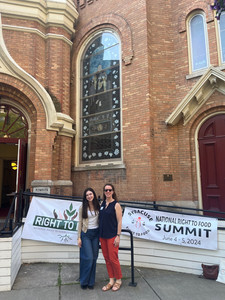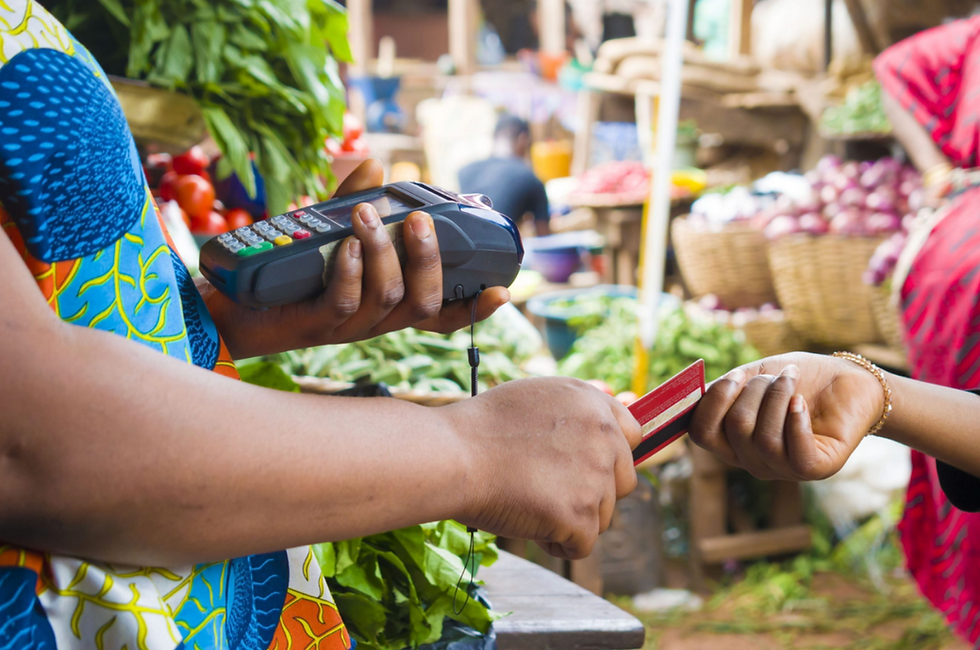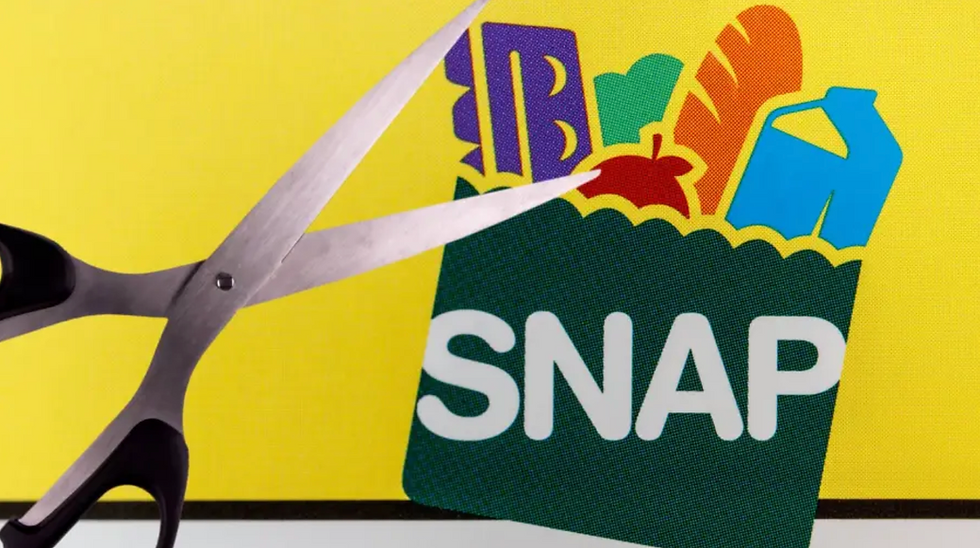Summary of the 2024 National Right to Food Summit: Syracuse, New York in the Spotlight
- alisoncohenrtf
- Aug 19, 2024
- 9 min read
Updated: Sep 9, 2025
August 19, 2024
On June 4-5 2024, the National Right to Food Community of Practice brought together a wide range of people within the U.S. food system including farmers, community leaders, advocates, academics, policy makers and food service workers for the 2nd national summit titled: Right to Food as a Pathway to Economic Justice and Community Self Determination in Syracuse, NY.
The main goals of this convening on the right to food in the U.S. was to amplify the systems and institutions that perpetuate food insecurity in high-poverty neighborhoods, as well as the solutions implemented by community organizers and residents working on the frontlines to break the cycle of children entering the school-to-prison pipeline. This year the summit was hosted in one of the most food insecure and poverty ridden cities in the entire country, Syracuse, with the intent to amplify the current state of the local food system and spark conversation about solutions that could resonate across the country.
The summit began with three powerful panels. The keynote panel discussed moving along

the continuum from food charity to food justice, from the right to food to food sovereignty. Panelists included right to food trailblazers that discussed how the implementation of the right to food can help us move away from the food charity model that supports the expansion of food banks and soup kitchens, towards a food justice and food sovereignty model rooted in food as a human right. A right to food model would support changes in policy, programs and institutions as defined by local communities who are organizing to reinvigorate equitable local food and farm economies. At the center of this change is giving people the opportunity to define their own food and agriculture system. They highlighted how the international human rights framework provides us with the opportunity to build global linkages to communities struggling for the right to food. Watch the recording of the keynote panel here.

The second panel was specific to Syracuse, dissecting the complexities of the local food system. This panel was anchored by Syracuse resdients who are farmers, urban growers, those who are experiencing food insecurity, and those who represent organizations building coalitions of food justice advocates. They gathered to give their insight on food apartheid and chronic economic disparities that plague the city, preventing families from securing healthy and adequate foods. Watch the recording of the panel here.

The last panel focused on the practices within states, cities and regions across the country that are framing their efforts to transform the food system in terms of food as a human right. These panelists discussed what the right to food looks like in their communities and how it has changed the trajectory of their efforts to build local and regional food and farming systems. Watch the recording of the panel here.
On the second day of the summit, a special workshop was held, organized by the Come to the Table Program of RAFI. Titled Telling our stories: Food & Faith Narrative Workshop, the workshop was anchored in the experiences of Syracuse local Wesley Rohadfox, Garden Coordinator at Interfaith Community Garden and Appleseed Outreach. Wesley told his story, rooted in his faith, of urban farming with community members to increase their access to fresh food. The workshop instigated a dialogue about how the human right to food can be framed in terms of faith and justice.
A central event of the summit was the People’s Tribunal. People’s tribunals are platforms for justice organized by social movements and organizations to hear cases, often against governments and state-supported corporations who are not fulfilling their duties and obligations to the public. These tribunals operate independently as grassroots initiatives within civil society, in an effort to confront the shortcomings of leadership for current or historical injustices.

At the Right to Food summit in Syracuse, the People's Tribunal served as a platform for demanding economic justice, community self-determination, and ensuring affordable, accessible, and nutritious food for all residents of Syracuse. The mock trial marked an important moment for local food justice advocates and practitioners to hold local authorities and institutions accountable. Syracuse, plagued by the second highest poverty rate among mid-sized cities in the U.S., faces profound challenges including inadequate access to nutritious food, particularly affecting children whose health and well-being suffer disproportionately. The city's history of systemic racism and redlining continuously intensify these issues, contributing to the highest concentration of Black and Brown poverty among similar-sized cities nationwide, and with 50% of the city designated as food deserts according to the U.S. Census Bureau. You can watch the video of the People’s Tribunal here.
Despite rich community resources and initiatives, local voices advocating for solutions often

go unheard. The People’s Tribunal, hosted by Anotnisha Owens, a lifelong resident of Syracuse and an urban farmer, provided a platform for local voices to illuminate the stark realities of food injustice and systemic neglect within the community. Contaisha Pringle, a Syracuse resident, touched the hearts of the crowd by capturing these struggles through poetry and spoken word, vividly depicting the food apartheid prevalent in her upbringing. She highlighted the widespread accessibility issues of heavily processed foods and the scarcity of fresh, nutritious options, describing their detrimental impact on the health of the community.
Activists and community members further underscored these challenges, revealing disturbing disparities in resource allocation. Despite Syracuse ranking highest among mid-size cities in childhood poverty rates in 2020, city officials prioritized an $85 million aquarium project over addressing fundamental food security issues. In response, grassroots efforts, such as the Food Access for Healthy Neighborhoods Now (FAHNN) as described by founder Rhonda Vesey, have emerged with activists establishing fresh food markets in food deserts to mitigate these inequalities.
Colin Edwards, a college student and Farm Manager at Urban Delights at Jubilee Homes, helped the Tribunal audience understand pressing issues like food insecurity among college students, limited access to food outside of certain hours, and the inadequate nutritional support for low-income children, further perpetuating the school-to-prison pipeline. There is also a disconnect in the educational system, described by Yoland Bey, a Chef and Food Educator at the Syracuse City School District, about food origins and growing/harvesting of foods, which pushes the community further away from self-reliance to fix nutritional deficiencies among youth.
The New American perspective offered a touching narrative shift, highlighting the journey from growing your own food to food scarcity. Adol Mayan of Northside Now and an advisory member of SOFSA, described stories of refugee children sacrificing their own meals for their siblings. And Rachel Murphy, the Director of Food and Nutrition Services at the Syracuse City School District, admonished schools for sugar-filled products offered in vending machines, as well as procedural barriers preventing up to 40% of all eligible families from accessing SNAP benefits.
Housing insecurities were intimately tied to food justice, as emphasized by the statement, "We can’t talk about food if we don’t have a roof over our head" by local activist Mabel Wilson, Umoja Community Garden at Pioneer Homes. Calls for self-determination resonated strongly, advocating for community empowerment through local food production initiatives.
The tribunal also shed light on the dehumanizing conditions within the prison system, outlined by Montanette Murphy, Executive Director of Human Rights for the Onondaga County Justice Oversight Committee, where inmates are subjected to inedible meals and severe food shortages. Limited access to fresh food and exploitative commissary prices further worsening their plight, underscoring the urgent need for humane treatment and equitable food provision.
After these compelling testimonies, several solutions were proposed by locals who actively work within the food system towards combating these issues. Charles "Shoebox" Madlock from Golden Carat Farms suggested a 1% tax on Syracuse University home game tickets to fund a citywide Community Supported Agriculture (CSA) program, ensuring fresh produce access for all income levels. Alemia LaDolce, Executive Director of Volunteers Improving Neighborhood Environments, INC. (VINES), promoted urban farming and community gardens, based on her experience in Binghamton, through workshops, youth programs, and a sliding-scale Farm Share initiative. Jamila Walida Simon of Cornell University highlighted youth-focused initiatives like the Dignity Garden in Ithaca and food rescue efforts. Assistant Commissioner Damali Wynter from NY State Ag and Markets advocated for agricultural workforce development and community garden support across New York. These solutions aim to address food insecurity and foster sustainable food systems in local communities.
Local officials Patrona Jones-Rowser, Syracuse District 4 Common Councilor, and Twiggy Billue, Syracuse City School District Board of Education Commissioner shared their initiatives. Patrona emphasized housing and green spaces for food cultivation. Twiggy aims to introduce an agriculture track at Institute of Technology at Syracuse Central High School and restore the Future Farmers of America program at Nottingham High School. Plans include establishing a school district farm to provide food for families and developing a Community Supported Agriculture (CSA) program, aiming for broader community impact beyond individual student participation.

Overall, the People's Tribunal in Syracuse kickstarted a collective call for social and economic justice, urging systemic reforms to ensure that every resident, regardless of circumstance, has access to adequate, nutritious food as a fundamental human right. The judges Angela Odoms-Young, Smita Narula, and Ora Kemp ruled the city of Syracuse is guilty of violating the Right to Food, notwithstanding their duties to respect, protect and fulfill, as well as the violation of Human Rights of Dignity. The judges also found the city in violation of the Right to Non-Discrimination, failure to uphold the right to equality, violating the right to health, education, and housing. And lastly failure to uphold the rights for the most vulnerable populations: incarcerated, elderly, children, and the disabled. In closing, the judges also acknowledged the importance of ensuring indigenous sovereignty which goes far beyond the human rights framework. And, in following through with the judge’s recommended plan of action, to uplift the sovereignty of indigenous community members, not just as in fulfillment of human rights violations, but as reparations to communities that have long suffered the violence of a very, oppressive food system and that have worked and survived and thrived and been resilient in the context of that food system.
In this author’s opinion, it is important that the attendees at the Summit from within the Syracuse food system maintain the new connections they’ve made. This event gathered many actors within the food justice community who all have the common goal of cultivating a new US food system that allows everyone to maintain their dignity and true freedom from hunger. Currently Syracuse activists and community leaders are working on a lot of different ways to bring fresh, whole, nutritious foods to their communities. One of the main takeaways from this convening is that we can’t do this alone. And we don’t have to. With the help and guidance from other attendees, perhaps those from Maine where the Right to Food is now recognized, or those from the mayor’s office in New York City who are privy to policies and laws, Syracuse can make great headway on work towards the right to food. The spotlight of food justice is currently Syracuse, NY. Coming from a resident, the underserved communities within the city of Syracuse don’t get these kinds of opportunities often, or even at all. It is crucial right now to continue to connect and create plans for the new Syracuse food system to take to the local government, while we have their attention.
_________________________________________________________________________________
The recommendations offered below from the judges in the People’s Tribunal can be used by local officials in Syracuse to begin to create change in Syracuse’s Food System. They can also be used as a model for cities with issues similar to Syracuse as they plan to upend hunger and poverty.
Recommendations:
Develop a Comprehensive Food Policy Plan
Explore more opportunities for land sovereignty, stewardship, and land reclamation practices to ensure that all of those who desire to learn how to produce their own food have the right to do so.
Update laws and policies to ensure that prior to the removal of any necessary resource, there is another vendor (grocery store) that will be taking its place.
Expand zoning laws to allow alternative forms of food access into food insecure neighborhoods.
Partner with local growers and producers to bring in green markets to ensure continuous access to food.
Institute an Accountability Board
This will ensure that the changes that are proposed in the Food Policy Plan are implemented and monitored.
Assess Food Availability on Campuses
Reassess the school food plans to take into consideration “common sense structure” (food should be accessible for students around the clock).
Annual Analysis of Healthy Food Supply
Create accessible food networks taking into consideration where our blind spots exist (places with no adequate grocery stores/food supply).
Conduct a Food Equity Impact Assessment and Develop Policies with Equity at their Core
Understanding that if we prioritize the most at risk groups, all groups will be included and will benefit as well by default.
Prioritize Food Rescue
Glean healthy food that will be otherwise disposed of and distribute it to people in need.





























